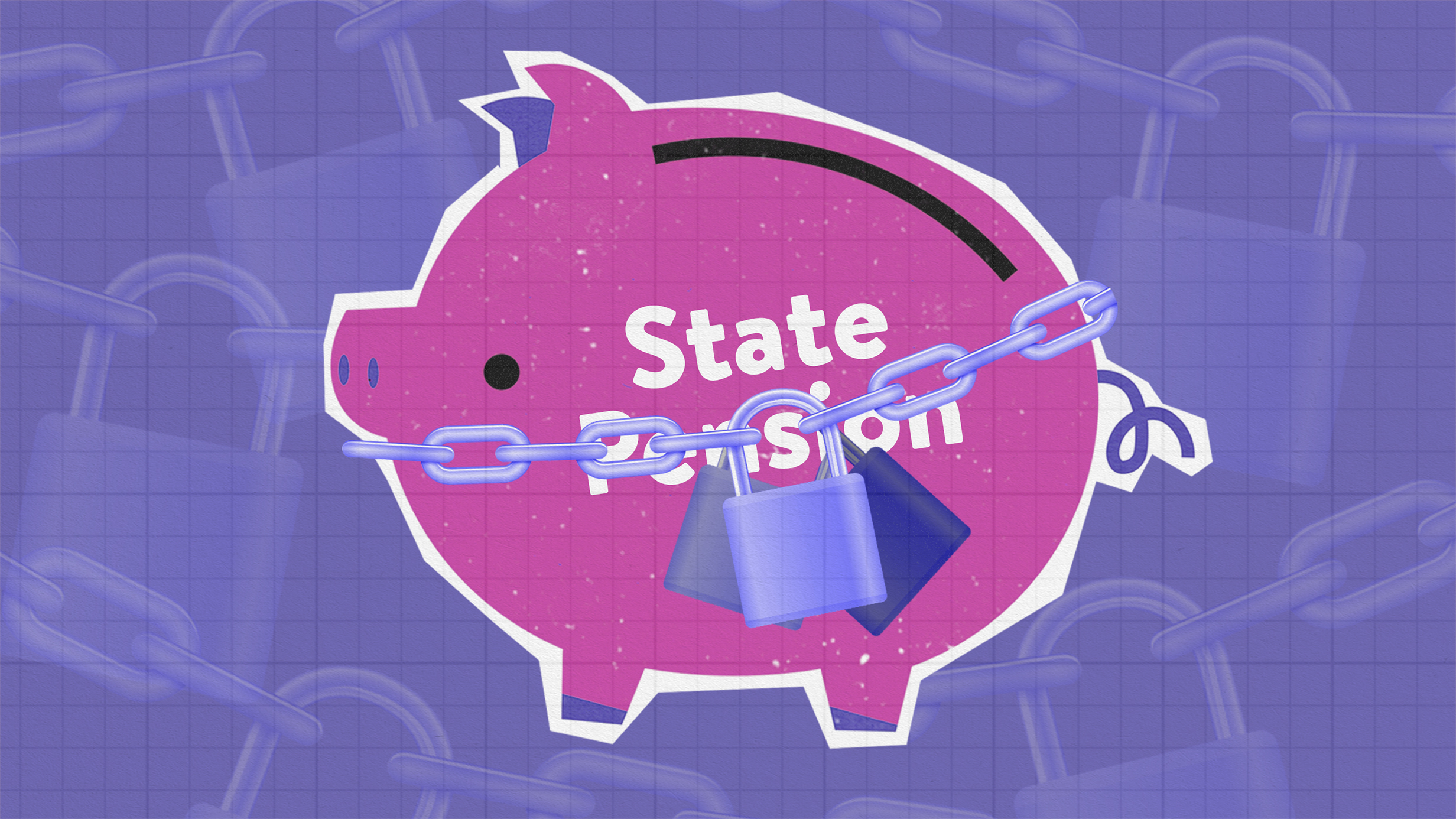What’s the deal with the State Pension triple lock – and how does it affect me?
A 5 minute read

The State Pension will rise by 4.1% in 2025, courtesy of the triple lock – but what is it, and how does it work?[1]
Words and phrases get bandied around a lot when it comes to talking about pensions. It can be pretty tiring trying to keep up – especially if you’re not planning for retirement just yet.
‘State Pension triple lock’ is one of those mouthfuls. How can something like my pension be ‘locked’ – and not even just once, but thrice?!
That’s why we’re here to help you understand what it means – and why it’s important when it comes to thinking about your future, beyond work.
Firstly, what is the State Pension?
The State Pension is a regular payment from the UK government that you can receive once you reach State Pension age – which is currently 66.[2] It’s designed to provide a basic level of income to help support you in retirement.
To qualify for the State Pension, you need to have paid or been credited with National Insurance contributions for a certain number of years. The amount you receive depends on your National Insurance record.[2]
The State Pension is an important part of many people’s retirement plans, but it’s worth remembering that it’s just one piece of the puzzle. To ensure a comfortable retirement, it’s a good idea to explore other sources of income and savings as well.
How much will I get from the State Pension, and when?
Right now, as an employee, you’ve probably been auto-enrolled into your employer’s pension scheme. You might even have a private pension, too.
But, depending on your National Insurance contributions over your working lifetime, you could also be entitled to a State Pension of as much as £221.20 per week – equating to £11,502 a year.[3]
You can check your State Pension forecast to find out how much you could get when you reach State Pension age.
The State Pension is paid to people once they reach State Pension age (which is currently 66) and decide to claim it.
OK, but what is the triple lock?
The State Pension triple lock is basically a promise made by the UK government to make sure that the State Pension keeps up with the cost of living.[3]
It was introduced back in 2011, and the idea is to protect the value of the State Pension against increases in inflation and average earnings.[4] After all, no one wants to see their hard-earned pension lose value over time, right?
Here’s how it works: every April, the State Pension goes up by whichever of these three things is the highest:
- Inflation: This is measured by the Consumer Prices Index (CPI). It’s a fancy way of saying how much the cost of stuff like shopping, clothes, and other essentials has gone up over the year. The rate of inflation in September of the previous year is used.
- Average earnings growth: This tracks how much the average wage in the country has increased. If people are earning more, it makes sense that pensions should go up too, right?
- A minimum of 2.5%: Even if inflation and wage growth are low, the State Pension will still go up by at least 2.5%. It’s a safety net to make sure pensioners get an increase of at least 2.5% each year.
This means that, while prices for everyday items can go up and wages can increase, the triple lock helps ensure that those receiving a State Pension get an increase that’s in line with the rising cost of living.
Of course, not everyone agrees on whether the triple lock is the best way to do this. Some people think it’s too expensive for the government, while others believe it’s essential for protecting pensioners.
For now, it’s the system in place to help keep pensions in line with the cost of living.
What would happen to my State Pension without the triple lock?
Without the triple lock, the State Pension would likely increase at a slower rate. Instead of being guaranteed the highest of inflation, average earnings growth, or 2.5%, the pension might only rise in line with one of these measures – or potentially even less if the government decided to implement a different policy.
This could mean that, over time, the value of the State Pension might not keep up with the cost of living or wage growth, leading to a decrease in purchasing power for retirees.
Essentially, without the triple lock, there's a risk that retirees could see their standard of living decline as prices for goods and services increase faster than their pension income.
Can I live off the State Pension?
Whether you can live off the State Pension depends on your individual circumstances, including your lifestyle, expenses, and any additional sources of income you might have.
As mentioned earlier, as of now, the full new State Pension rate is £221.20 per week – which amounts to roughly £11,502 per year.[1]
For some, this might be enough to cover basic living expenses, especially if they have other savings, investments, or income sources – such as a private pension.
However, for many people, the State Pension alone may not be sufficient to keep up with their desired standard of living. It's often recommended to have additional savings or income streams to supplement it.
Planning for retirement and considering other pension schemes or savings options can help to ensure a more comfortable and financially secure retirement.
Whether you’re looking to the future or not, it’s worth checking out these helpful guidelines from the Retirement Living Standards. They could help you work out how much you’re likely to need for a comfortable life after work. It can help you picture your future, no matter what stage of life you’re at.
Overall, the State Pension triple lock could be an important factor in making your retirement dreams a reality.
Sources:
[1] Autumn Budget 2024 (HTML) - GOV.UK. Data source, HM Treasury. October 2024.
[2] What is the State Pension? | MoneyHelper. Data source, MoneyHelper. Accessed November 2024.
[3] The triple lock: How will State Pensions be uprated in future? Data source, House of Commons Library. October 2023.
[4] What is the State Pension triple lock? | MoneyHelper. Data source, MoneyHelper. April 2024.



